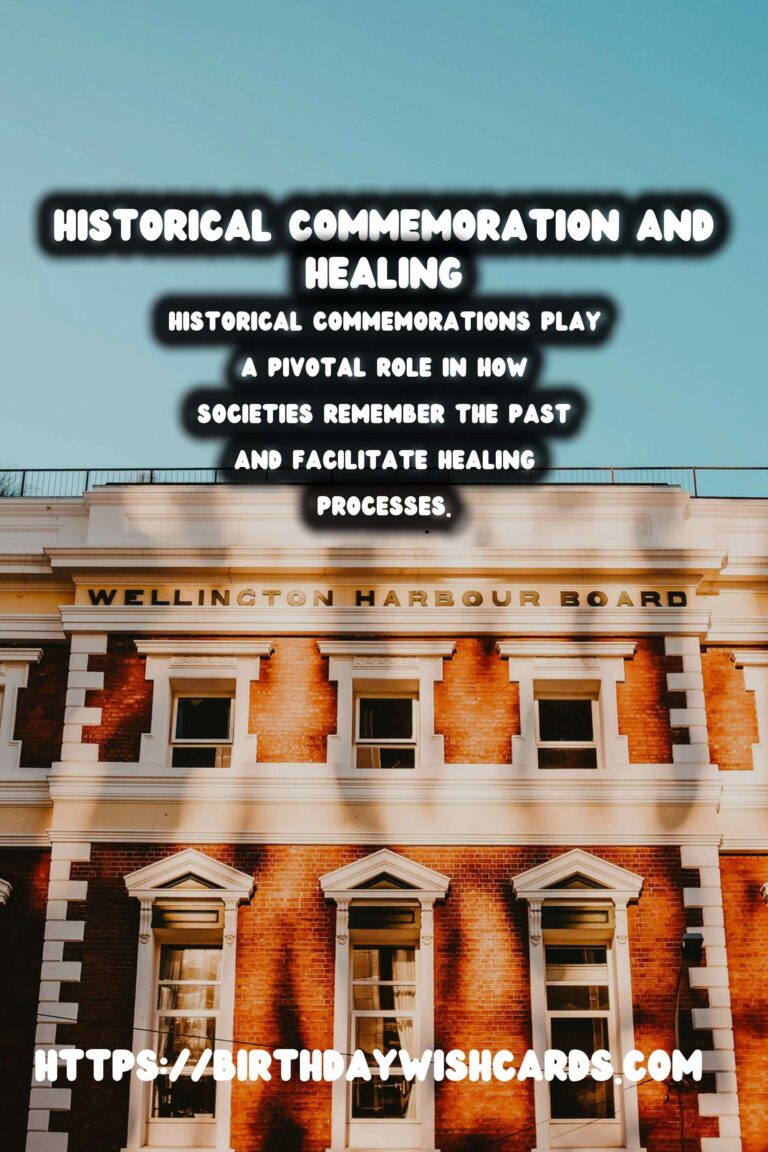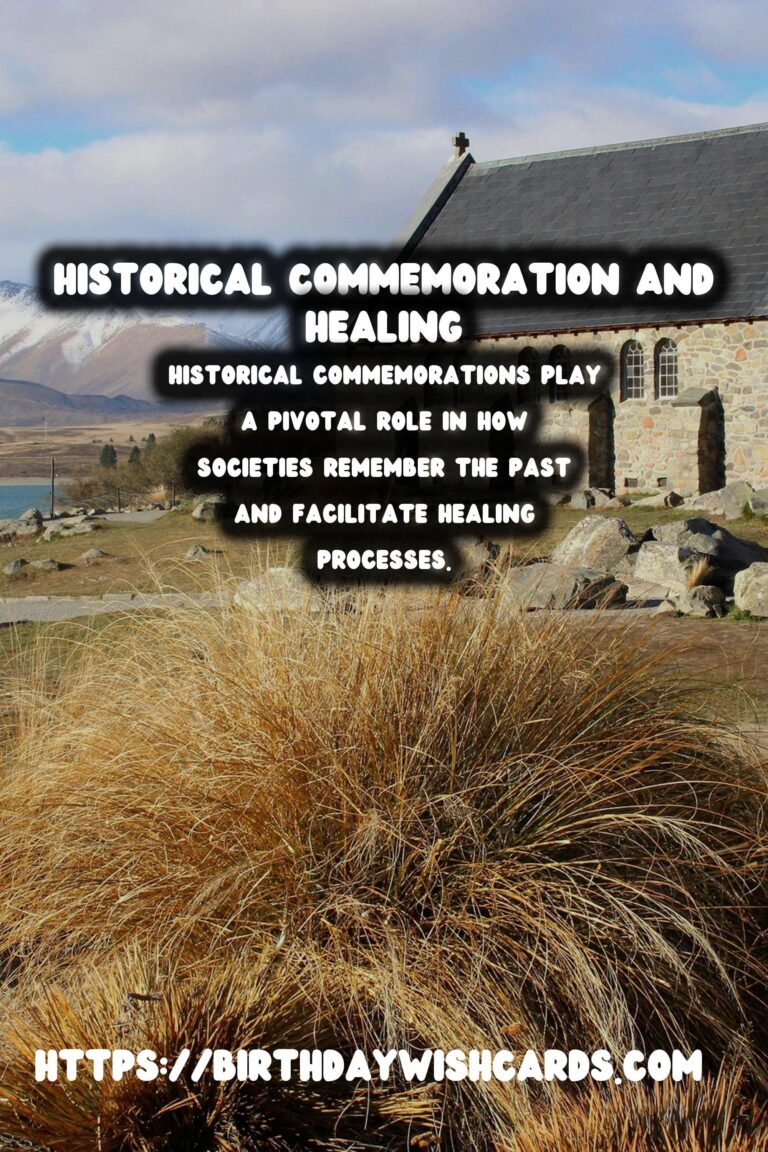
Historical commemorations play a pivotal role in how societies remember the past and facilitate healing processes. By marking significant events in history, communities acknowledge collective memories, fostering a sense of identity and continuity.
The Importance of Commemorations
Commemorations serve as a bridge between past and present, allowing for reflection on the impacts of historical events. They provide an opportunity to honor those who suffered and to educate future generations about the past.
Moreover, these events promote communal healing by acknowledging past traumas and offering a platform for dialogue and reconciliation.
Types of Historical Commemorations
There are various forms of historical commemorations, including national holidays, public ceremonies, and memorials. Each serves a unique purpose in the context of remembrance and education.
For instance, national holidays like Memorial Day in the United States or Anzac Day in Australia are dedicated to commemorating military service and sacrifice.
Commemorations as Educational Tools
Educational programs accompanying commemorations often include lectures, exhibitions, and discussions. These activities are crucial for sharing knowledge about historical events and their significance. They ensure that people understand the complex narratives and consequences of the past.
Educators leverage these commemorations to spark interest in history among students, making them more aware of their heritage and history’s relevance to their lives.
The Healing Power of Commemorations
Healing is an integral part of commemorations. They offer an opportunity for those affected by historical traumas to come together, share their stories, and find solace in collective memory.
Public recognition of past injustices, such as through the commemoration of pivotal events like the Holocaust, aids in the healing process by honoring the victims and committing to preventing future atrocities.
Challenges in Commemorating History
Despite the benefits, commemorations can also face challenges, particularly in terms of inclusivity and representation. It’s important to ensure that these events are inclusive, representing all sides of history without bias.
Acknowledging differing perspectives and uncomfortable truths is essential to fostering genuine understanding and reconciliation.
The Future of Historical Commemorations
As society evolves, so too must the ways in which we commemorate our past. Innovations in technology, such as virtual reality and digital archives, offer new opportunities for engaging with historical narratives.
By embracing these tools, commemorations can reach broader audiences, ensuring that the lessons of history are accessible to all.
Ultimately, the future of historical commemorations lies in their ability to adapt and remain relevant, continuing to offer solace, education, and inspiration to future generations.
Historical commemorations play a pivotal role in how societies remember the past and facilitate healing processes. Commemorations serve as a bridge between past and present, allowing for reflection on the impacts of historical events.
#HistoricalCommemorations #MemoryAndHealing

